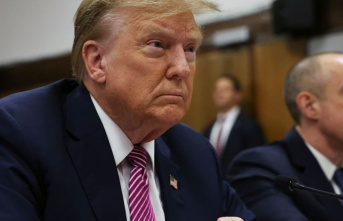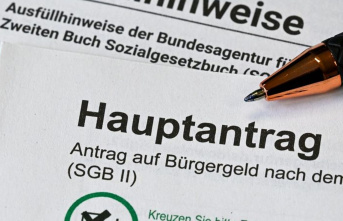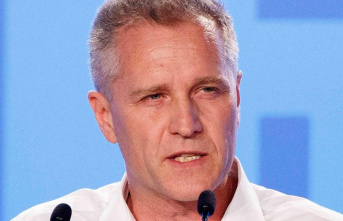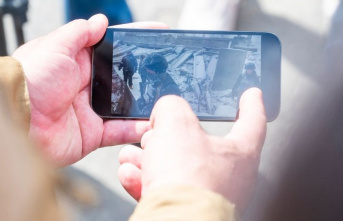Rarely do top Iranian politicians express doubts about the government's course. All the more surprising are the clear words of well-known reform politicians who are slowly campaigning for a change of course five months after the start of the most recent protests. "One of the problems of the events of the past few months was the emergence of deep social divisions," admitted Iran's former President Hassan Rouhani, for example. In the cities, many women simply create facts and no longer wear a headscarf - despite existing regulations and possible penalties.
The political rifts in Iran have existed for decades. Street protests, burning headscarves and a young generation fighting against the Islamic Republic: all of this reminds the artist Akram Abooee of her own fight for more equality. "I wish we had had the courage to take off the headscarf like women do today," says Abooee. The 59-year-old painter, widow of the famous Iranian writer Abbas Maroufi, has lived in Germany since the 1990s.
Millions of Iranians now live abroad, and many cannot return to their homeland due to the threat of repression. The protests also bring back memories of the time of political upheaval after the Islamic Revolution of 1979. "There were many women who were against the headscarf requirement, but since politics and religion were now linked in the constitution, we couldn't do anything. There were protests , but the state was more powerful," says Abooee.
The revolution marked the beginning of a new Iranian era. Revolutionaries from different camps brought down the monarchy, but one group finally prevailed: With the return of the charismatic religious leader Ayatollah Ruhollah Khomeini from exile in Paris, the state was gradually transformed into the current Islamic system of government.
Just a year later, the region fell into chaos. An Iraqi invasion was followed by a bitter decade of war that bound Iran but crushed any opposition. Numerous intellectuals, artists and writers were imprisoned and also executed. "As children of the revolution, we only experienced pain, suffering and violence," says Abooee.
In Tehran, the arch-conservative President Ebrahim Raisi has since declared the recent protests a failure. In the past few weeks, only slogans painted over on the walls of houses reminded of the demonstrations, otherwise everyday life had returned in many places. But many doubt that the demonstrations failed. The atmosphere is "like fire under the ashes," it continues to simmer, it is often said in Iran.
A fire that flared up again this week. According to reports from eyewitnesses, numerous people again demonstrated against the political and spiritual leadership on Thursday evening - including in Tehran, the city of Mashhad in the northeast and the Kurdish regions. Activists had called for this after the traditional 40-day mourning of two executed demonstrators.
Many reported violent protests in the Kurdish cities of Sanandaj and Ghorweh, where protesters set up barricades and set fire to garbage cans. Security forces responded with warning shots. Several youths are said to have been dragged into police cars. In other parts of the country, many women once again roamed the streets. Cries of "death to the dictator" and "woman, life, freedom" could also be heard in Tehran.
The painter Abooee has been following the recent protests closely, triggered by the death of the young Iranian Kurd Jina Mahsa Amini, who was arrested because of an ill-fitting headscarf. "The youth of Iran don't believe in religion or tradition and they don't want to. Women led the protests until finally men sided with them."
The ongoing economic crisis in Iran and the associated lack of future prospects is a major burden, especially for the younger generation. Intellectuals in Tehran are also concerned about the growing social division.
"Today's young people are not familiar with the philosophy of the revolution," says reform politician Abbas Abdi. "The political system bombards them with propaganda instead of familiarizing them with the concepts of the time." Abdi is now 66 years old. As a young man he was part of the left-wing movement. After the revolution, he was involved in the occupation of the US embassy, which heralded the beginning of hostility between the US and the Islamic Republic.
The intellectual, who has already been imprisoned for his critical statements, laments the lack of vision on the part of those who want to change the system from within. Reforms should be deeper. "You have to be closer to changing the system," says Abdi. "The hijab was political from the start and has remained so to this day, even the left didn't mind, but the current situation is different," says the former revolutionary.












